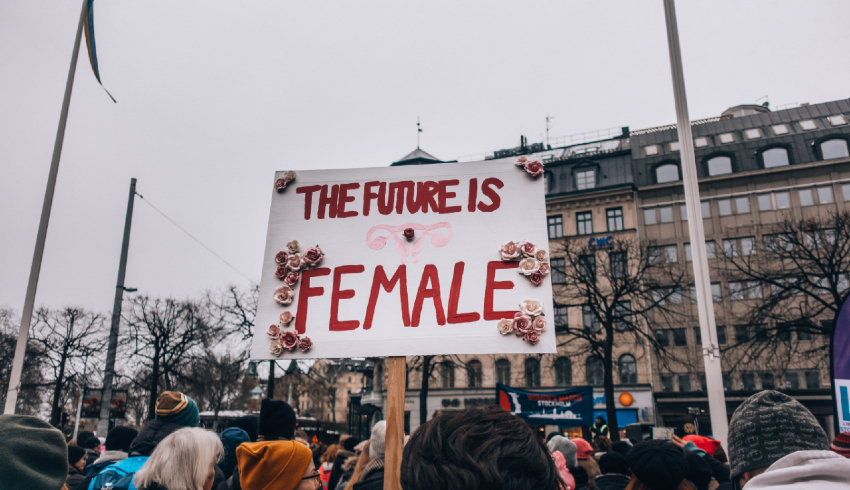Blog

This week’s edition of the AllAboutLaw blog looks at Lady Hale’s prediction that the judiciary will be gender equal by 2033, the challenge of GDPR in relation to scientific research and the not-so-unusual case of Picasso’s electrician.
Will we have gender equality in the judiciary by 2033?
Lady Brenda Hale, the president of the Supreme Court, made a statement addressing the Bar Council’s annual conference that gender parity in the UK judiciary will be achieved by 2033. This estimation is a lot more optimistic compared to previous predictions, signalling a rapid progression in gender equality in the legal sector. In 2012, Lord Sumption, a retired judge in the Supreme Court, shared his belief that it would be more than 50 years before parity was achieved in the judiciary.
Lady Hale’s prediction is based on recent figures in which the average rate of increase in female judges has increased by 1.34% in the past seven years. However, this increase is not representative of all levels of the judiciary. For instance, senior roles showed a lower representation of female judges than in less senior roles, and more generally 29% of court judges were female.
This discrepancy is most likely due to parental responsibilities, as Lady Hale mentioned: “increasingly it’s motherhood rather than gender [discrimination] which holds women back”. Her address coincides with the centenary of the Sex Disqualification (Removal) Act 1919, which enabled women to become solicitors, barristers, magistrates and jurors for the first time.
__________________________
“The law, which institutes annual checks of Hong Kong’s autonomy, may not be able to hold back the slow whittling away of the territory’s arms-length relationship with Beijing. But its passage reminds US lawmakers what it means to be driven by the highest ideals, even as they say to every Hong Kong protester: We see you.”
Tripti Lahari, on the Hong Kong Human Rights and Democracy Act.
__________________________
Firm News
A legal recruiting firm is suing Freshfields Bruckhaus Deringer for hiring a partner under their recommendations.
Stephenson Harwood has hired Don Brown, a receivables finance expert, as a partner in the firm’s London office.
Herbert Smith Freehills launches a digital law group to advise clients on “digital transformation.”
Pinsent Masons has appointed Ian Laing, a Singapore-based partner, as the firm’s global head of infrastructure.
__________________________
The GDPR is infringing on scientific research
The introduction of the General Data Protection Regulation (GDPR) has enabled European citizens to control to a greater degree their own personal data, and how their data gets distributed. However, this regulation has proved to be problematic for Francis Collins, the director of the U.S. National Institutes of Health (NIH), on his diabetes and Alzheimer’s research. He has been collecting data since 1993, but following May 2018, when the GDPR came into force, one European institute ceased to share any data for Collins’ study. For the time being, navigating the legal requirements of the GDPR has without success. However, under the pretext that the research is “necessary for important reasons of public interest”, the data may once again be made available.
__________________________
Reading the news is one part of commercial awareness—but how can you put it into practice? Access our interactive case study builder as well as other exclusive content in our all-new Commercial Awareness Toolkit.
__________________________
Picasso’s handyman is convicted yet again for possession of stolen art
Following a 10 year legal fiasco, a French couple has been found guilty for possession of stolen paintings by Pablo Picasso. Danielle and Pierre Le Guennec, the former electrician of the famous artist, have appealed two prior judgments. However, the final ruling by the Lyon Court marks the last hurdle, with the couple sentenced to a two-year suspended jail sentence. The stolen works include nine Cubist collages and a painting from Picasso’s blue period.
__________________________
Recommended Reading
1. The chairman of the Bar Council in England and Wales has voiced his concerns on the detention of leading lawyers in Kashmir.
2. In the lead up to the elections, NGOs are calling on the next government to end “gagging orders” preventing them from campaigning for the poor and marginalised in society.
3. If you are on the hunt for vacation schemes this winter, check out our seven facts about them to boost your chances of landing one.
4. The debate around assisted dying once again reached headlines, as The High Court dismissed Phil Newby’s case.
5. As sex avatars modelled against the likeliness of regular people are becoming increasingly common, the laws designed to protect such individuals are not sufficient.
6. Following the protests in Iran over rising fuel prices, Iran’s revolutionary guards have arrested around 100 protest leaders.
7. The contradiction between local and federal law in relation to weed has lead to the House Judiciary passing the Marijuana Opportunity Reinvestment and Expungement (MORE) Act.
Academy tools to help you get a job
-

Free Watson Glaser Practice Test
Understand the test format, compare your performance with others, and boost your critical thinking skills.

